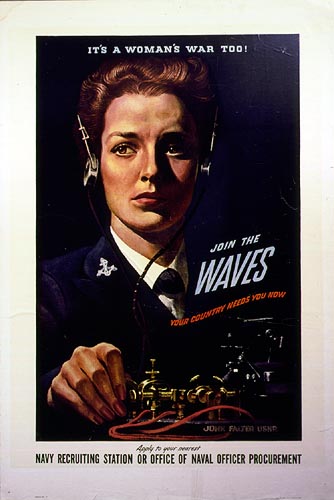


History 120: United States History
George Mason University, Spring 2005
Professor Zachary M. Schrag
Practice Final Exam
Please choose two of the following passages. Write an essay of roughly 5-7 paragraphs comparing the two passages, placing them in historical context and explaining how three people described in Contending Voices might respond to the passages. You may either write about three people from list A, or two people from list A and one from list B.
Your first paragraph should explain the general argument of the documents, describe an important difference between them, and present a thesis statement that uses historical context to explain the difference. Please underline your thesis statement.
Each of the following three paragraphs should present evidence for your thesis based on direct quotation from the documents and on the ideas of one of the forty-eight people whom you have studied in Contending Voices, so that you address the arguments of three of those people in total. Be as precise as possible when explaining similarities and differences. Pay attention to both the problems and potential solutions identified by each author as well as the rhetoric he or she uses.
Your final paragraph should restate your thesis and explain its significance to one’s broad understanding of American history in the period 1770-1975.
I suggest you take some time to think about your answer and outline your essay before you begin writing the essay itself. Good luck.
List A
Terence Powderly, Jay Gould, Tom Watson, Henry Grady, Emma Goldman, Ellen Richards, Randolph Bourne, George Creel, Marcus Garvey, A. Philip Randolph, Bruce Barton, Ralph Borsodi, Upton Sinclair, Louis B. Mayer, Harry Ueno, Dillon Myer, James Byrnes, Henry Wallace, Lewis Mumford, Robert Moses, Roy Wilkins, Fannie Lou Hamer, Betty Friedan, Gloria Steinem
List B
Jonathan Sewall, John Adams, Patrick Henry, James Madison, John Taylor, Alexander Hamilton, Tecumseh, William Henry Harrison, Benjamin Lundy, David Walker, Fanny Wright, Catharine Beecher, Sarah Bagley, Nathan Appleton, Thomas Larkin, Juan Bautista Alvarado, Hinton Rowan Helper, George Fitzhugh, Mary Ann Shadd, Henry Bibb, Clement Vallandigham, Benjamin Wade, Robert Smalls, Carl Schurz
Document 1. Booker T. Washington, Address to the Atlanta Cotton States and International Exposition, September 18, 1895.
Washington, an African American, was born into slavery in Virginia in 1856. In 1881, he founded the Tuskegee Institute to train blacks as teachers, farmers, and craftsmen.
A ship lost at sea for many days suddenly sighted a friendly vessel. From the mast of the unfortunate vessel was seen a signal,“Water, water; we die of thirst!” The answer from the friendly vessel at once came back, “Cast down your bucket where you are.” A second time the signal, “Water, water; send us water!” ran up from the distressed vessel, and was answered, “Cast down your bucket where you are.” And a third and fourth signal for water was answered, “Cast down your bucket where you are.” The captain of the distressed vessel, at last heeding the injunction, cast down his bucket, and it came up full of fresh, sparkling water from the mouth of the Amazon River. To those of my race who depend on bettering their condition in a foreign land or who underestimate the importance of cultivating friendly relations with the Southern white man, who is their next-door neighbor, I would say: “Cast down your bucket where you are”— cast it down in making friends in every manly way of the people of all races by whom we are surrounded.
Cast it down in agriculture, mechanics, in commerce, in domestic service, and in the professions. And in this connection it is well to bear in mind that whatever other sins the South may be called to bear, when it comes to business, pure and simple, it is in the South that the Negro is given a man’s chance in the commercial world, and in nothing is this Exposition more eloquent than in emphasizing this chance. Our greatest danger is that in the great leap from slavery to freedom we may overlook the fact that the masses of us are to live by the productions of our hands, and fail to keep in mind that we shall prosper in proportion as we learn to dignify and glorify common labour, and put brains and skill into the common occupations of life; shall prosper in proportion as we learn to draw the line between the superficial and the substantial, the ornamental gewgaws of life and the useful. No race can prosper till it learns that there is as much dignity in tilling a field as in writing a poem. It is at the bottom of life we must begin, and not at the top. Nor should we permit our grievances to overshadow our opportunities. . . .
The wisest among my race understand that the agitation of questions of social equality is the extremest folly, and that progress in the enjoyment of all the privileges that will come to us must be the result of severe and constant struggle rather than of artificial forcing. No race that has anything to contribute to the markets of the world is long in any degree ostracized. It is important and right that all privileges of the law be ours, but it is vastly more important that we be prepared for the exercises of these privileges. The opportunity to earn a dollar in a factory just now is worth infinitely more than the opportunity to spend a dollar in an opera-house.
Document 4. U.S. Navy recruiting poster, World War II

Text:
It's a Woman's War Too!
Join the WAVES [Women Accepted for Volunteer Emergency Service]
Your Country Needs You Now
John Falter, USNR [U.S. Navy Reserves]
Apply to your nearest NAVY RECRUITING STATION OR OFFICE OF NAVAL OFFICER PROCUREMENT
Except where noted otherwise, all original material on this site is copyright © 2005 Zachary M. Schrag. It may be used for non-commercial personal and educational purposes provided it is attributed to Zachary M. Schrag.